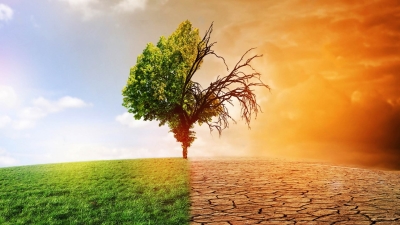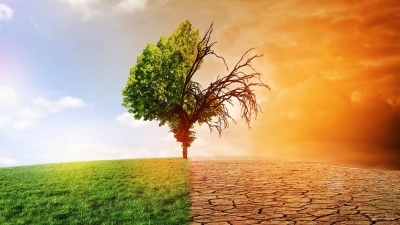How do humans impact Ecological balance?

Forests have always been an essential part of our battle to combat climate change; the fact that they contribute significantly to absorb approximately 30% of the carbon dioxide that emits annually, to prevent global warming by more than 1.1 degrees Celsius compared to pre-Industrial Revolution levels.
They are also a source of fiber, fuel, food and fodder, provide livelihoods for millions of people, help improve soil, air and water quality, and a source of renewable raw materials.
However, humans now are encroaching on this divine gift, to gradually eliminate it, which leads to high levels of carbon dioxide.
The issue threatens from the Amazon to the forests of Africa and Southeast Asia, to reduce precipitation rates in the tropics.
It also leads to the extinction of some animals, loss of a natural resource for leather, meat, or some medical materials, in addition to the desertification it causes.
Not only that, as it also leads to temperature imbalances, sometimes it rains in the summer and sometimes heat waves in the winter, affecting the growth of crops and the spread of insects, in addition to floods in the absence of trees.
In a report revealed by Nature magazine, and published by the World Economic Forum, indicated that emissions resulting from land-use change would consume about 15% of the global carbon budget over the next decade, assuming the current rate continues, which makes the process of decarbonizing the global economy difficult.
It also noted that halting deforestation does not mean stopping all emissions, but that early deforestation stop would allow these past emissions to get closer to achieving carbon neutrality by 2050.
Many international organizations have also called for the need to stop deforestation, most notably the Food and Agriculture Organization (FAO), Last October, as forests cover 31% of the world, store 296 gigatonnes of carbon, and are home to the majority of biodiversity on Earth.
Regarding the proposed solutions to address the climate crisis through forests, they are as follows: stopping deforestation, as this is the key to addressing the climate crisis by reducing greenhouse gas emissions and protecting more than half of the biodiversity on Earth.
In addition to planting trees, restoring productive capacities and improving ecosystem, restoring 1.5 billion hectares of degraded land leads to increase trees and increase economic sustainability.
In addition to using forests and trees sustainably in general, as wood and shrubs are highly valuable renewable resources, and an important source of carbon-neutral and even carbon-positive materials, as food harvested from forests is an important factor in improving the food security.









